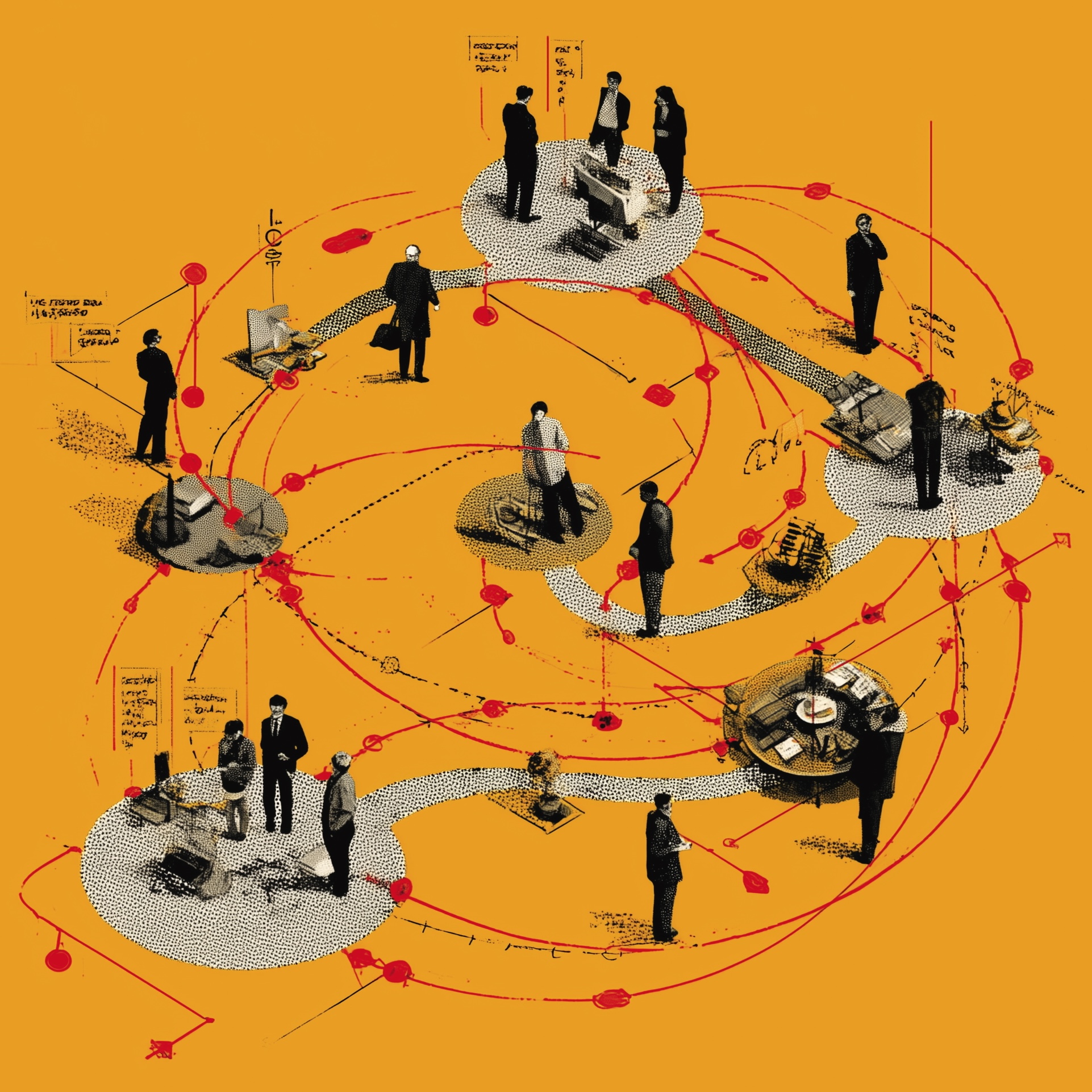NHS England & NHS Impovement: supporting MiP members at national and local level
We explain how MiP is standing up for members affected by the restructuring of NHS England and NHS Improvement, and negotiating to ensure this massive organisational change programme is managed fairly.

MiP is supporting dozens of members affected by one the biggest organisational change programmes of recent years – the effective merger of NHS England (NHSE) and NHS Improvement (NHSI).
Building on the joint working programme begun last year, the two national bodies announced in February that they were “effectively moving to become one organisation”, with a single chief executive and a single chief operating officer, although they will remain separate legal entities until parliament passes the necessary legislation for a formal merger.
Hundreds of staff in NHSE and both parts of NHSI – the Trust Development Authority and Monitor – are likely to be affected as seven regional structures and 11 corporate directorates are merged over the next nine months.
“MiP is supporting members through this process nationally, locally and individually,” explains MiP national officer Pete Lowe, one of the union’s four representatives on the joint NHSE/I Partnership Forum. “At national level we’re negotiating on the management of the change process, while at local level we’re working with directorates and regional management on how the changes are implemented. At the same time, MiP national officers in each region are supporting individual members whose jobs are affected.”
The shake-up is taking place in three distinct phases:
- Stage 1 affecting only the most senior posts – the national boards and the regional leads – has already been completed.
- Stage 2 involves executive senior managers (ESMs) across NHS England and NHSI and is due to be complete by April 2019.
- Stage 3 will involve the vast bulk of staff – everyone on Agenda for Change whose area of work is affected by the merger. Consultations with MiP and the other unions are expected to begin in July, with staff being allocated to new or changed posts from mid-September.
“Where posts are changing, people may be slotted into jobs in the new structure, or ring-fenced for interview,” adds Pete. “People who need to apply for new posts can do so anywhere in the country – not just within their own region or directorate.”
Avoiding job losses
Although no redundancies have been announced, MiP national officer Corrado Valle, who also sits on the joint Partnership Forum, warns that the requirement for 20% cost savings at each stage of the merger means job losses can’t be ruled out.
“I’m aware of some people who’ve already accepted voluntary redundancy, but we would expect management to keep their promise about no compulsory redundancies,” he explains. “We will continue working with our colleagues from other trade unions and management to minimise the risk of job losses, and MiP national officers will work one-to-one with any members whose jobs are at risk.”
What happens next?
- 31 MARCH 2019: Stage 2 (executive senior manager posts) due to be completed
- APRIL-JUNE 2019: Pause to resolve outstanding issues and discuss lessons learned from Stages 1 and 2
- JULY 2019 : Start of 45-day period of national consultation on Stage 3, followed by consultations on local implementation in 11 directorates and seven regional offices
- SEPTEMBER 2019: Start of consultations with individual members of staff affected by Stage 3, allowing time for appeals and possible grievance procedures
- DECEMBER 2019: Completion of Stage 3
Ensuring a fair process
MiP has already raised a number of serious concerns about the impact of the merger on staff, and is working to ensure that problems encountered during Stages 1 and 2 are not repeated with Stage 3 this summer.
MiP’s negotiating priorities are:
- Realistic timetables – Ensuring there is enough time for consultation with unions on the proposals for Stage 3 and for staff to consider properly how they affect them.
- Fair appeals – Agreeing an appeals procedure to follow the “Check and Challenge” panels used during Phases 1 and 2.
- Quality HR support – Ensuring there is sufficient capacity to provide high-quality HR support to all members affected and deal with the likely high volume of appeals.
- Fair treatment of displaced staff – Ensuring staff who are not “slotted in” to new posts are fully aware of the process in advance, kept fully informed and able to find suitable jobs in NHSE/I or elsewhere in the NHS
MiP is already supporting a number of members who have been displaced by the merger, and dealing with disputes over grading, job descriptions and whether teams fall within the scope of the restructuring programme. Some members have also complained about not having enough time to consider the options open to them and that assurances given at the start of the process have not been honoured.
Time to think
MiP has argued from the beginning that the timetable for implementing the proposals was unrealistic. “Last autumn, we raised a dispute with the employer because we didn’t accept that a trade union should simply rubber-stamp what NHS England was proposing,” says Corrado. “We believed that their timetable was too fast and didn’t allow us to scrutinise their plans or allow sufficient time to implement a fair process.”
MiP successfully argued for a three-month pause between the completion of Stage 2 and the beginning of Stage 3, to allow time for unions and management to review the process and for staff to consider how it will affect them.
“We think it’s important that people know what the management structure looks like and who their line manager will be before applying for a post or accepting a proposed move,” says Pete. “We want to ensure that by the time we go to consultation on Stage 3 we have a workable plan rather than starting the process and then having to stop because the process isn’t fair.”
Challenging unfair treatment
MiP has also been critical of the “Check and Challenge” process set up by NHSE/I, arguing that, without an appeals mechanism, a process designed to speed up challenges to management decisions has become an unwelcome addition to the formal grievance process. The union is now negotiating with management nationally on a more robust procedure for Phase 3, probably based on the existing NHSI grievance procedure

MiP national officer Ruth Smith (pictured), who is supporting a number of NHSE/I members based in Leeds, explains: “My view is that we need a longer process so that people have time to put their challenges in once they know the final structure and have them considered in a timely manner, as well as a dedicated appeal process with time allowed for that as well.
“Instructing staff to use the grievance procedure in order to appeal is just a mechanism to put people off appealing,” she adds. “We also need to make the whole process properly accessible to staff who are absent from the workplace as a result of ill-health or maternity leave, or who have disabilities.”
Corrado emphasises that members wanting to challenge the proposals need to move fast. “If you have a concerns about where you’ve been slotted in, or any aspect of the process, respond quickly in line with the guidelines from your employer and make sure you discuss it with the MiP national officer for your region as soon as possible,” he advises.
Can HR cope?
From the beginning, MiP has questioned whether there is sufficient HR capacity in NHSE/I to deal with such a large-scale organisational change project. “HR have work to do in reorganising themselves, while at the same time trying to keep the show on the road with day-to-day matters, and spreading themselves over 18 work areas to manage the merger process and deal with appeals and so on,” Corrado explains. “You are diluting the HR expertise available and you end up with inconsistent level of expertise around the country.”
MiP has noted that a number of all-staff communications about the process have been sent out after working hours, possibly indicating that HR staff are having to work late in order to keep up. In March, NHS England announced that Commissioning Support Units were being asked to provide additional HR support for the restructuring. “This would appear to suggest that there’s not enough capacity in the system, which is what we’ve been saying all along,” adds Pete.
How you can help
MiP and both employers are encouraging members in NHSE and NHSI to get involved with the merger process to help get best possible outcome for all staff. “NHS England and NHSI are very keen to have people on board – not just at national level but at local level as well,” says Pete. “Both MiP and the employer value your contribution and paid time off is available to enable members to take an active role in the process.
MiP members can help their colleagues by:
- Scrutinising local restructuring proposals
- Evaluating job descriptions and grading decisions
- Supporting members with challenges
- Sitting on Check and Challenge panels as a trade union rep
- Acting as a contact point for members with concerns about the process
- Becoming a local rep or MiP link member
If you can help in any of these ways, even for just an hour or two a week, please get in touch with your national officer.
If you’re affected by the merger
- Read any proposals from your employer carefully and ask your line manager or HR if there’s anything you don’t understand.
- If you are considering making a Check and Challenge submission, or are unhappy with any aspect of the process, speak to your MiP national officer as soon as possible.
- If time is short, notify HR of your intention to submit a challenge and tell them you have asked MiP to support you.
- Get involved – the more MiP members are engaged, the more chance we have of influencing the process and getting a better outcome for you and your colleagues.
Related News
-

NHS job cuts: you’ll never walk alone
As the NHS redundancies in England loom, Rhys McKenzie explains how MiP will back you, and how members supporting each other and acting collectively is the best way to navigate this difficult process.
-

What now? Seven expert takes on the Ten-Year Plan
The government’s Ten-Year Plan for the NHS in England has met with enthusiasm and exasperation in equal measure. We asked seven healthcare experts to give us their considered view on one aspect that interests, excites or annoys them.
-

NHS job cuts: what are your options?
When politicians start reforming the NHS, there is only one certainty: some people will lose their jobs. But what options might be on the table and how does redundancy work? Corrado Valle explains.